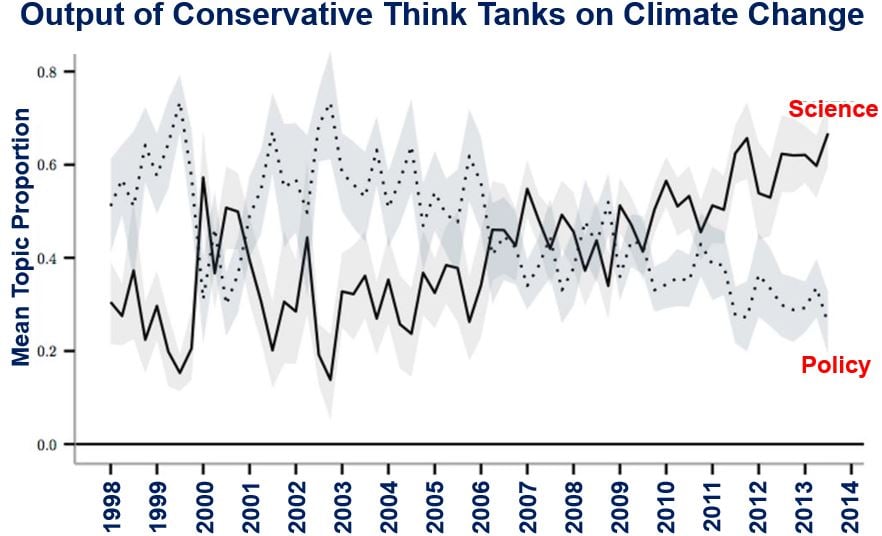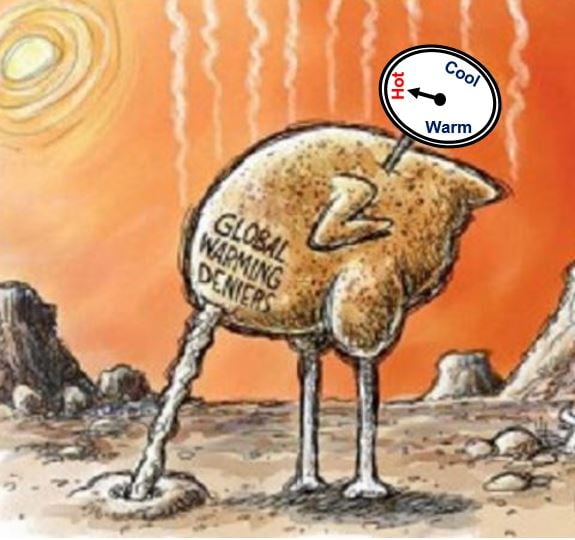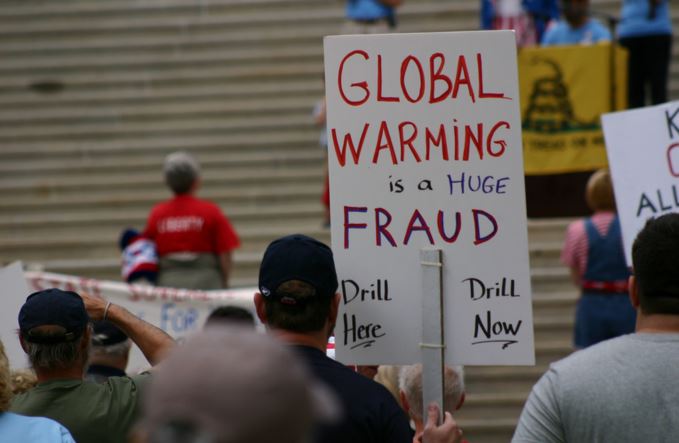Climate change denial is still strong, especially in the US, despite the overwhelming evidence that global warming has started and will get worse, and that the vast majority of climate scientists and countries’ leaders worldwide agree that our planet is getting warmer, mainly due to human activity.
One would think that after the scores of recent scientific studies demonstrating that global warming is a reality, the continually broken heat records, the rising incidence of extreme weather events across the planet, and the accelerated melting of the polar ice sheets, that climate change denial would be dead. This is not the case at all.
In an article published in Global Environmental Change (citation below), authors Constantine Boussalis, from the Department of Political Science at Trinity College Dublin, and Travis G. Coan, from the Department of Politics and Exeter Q-Step Centre at University of Exeter in England, explain that a sizeable proportion of the American public, as well as a significant number of lawmakers in the US Congress, continue rejecting the ‘consensus view’.
 From 1998 to 2014, the proportion of science-based reports from conservative think tanks increased while those on policy declined. (Source: Global Environmental Change)
From 1998 to 2014, the proportion of science-based reports from conservative think tanks increased while those on policy declined. (Source: Global Environmental Change)
Climate change denial campaign well funded
While the source of the climate change denials varies, one prominent explanation centres on the activities of an extremely well-coordinated and well-financed countermovement of climate change sceptics.
Prof. Boussalis and Prof. Coan say their study examines the literature on organized climate change scepticism by providing the first systematic outline of conservative think-tank sceptical discourse in almost 15 years.
They gathered and analyzed more than 16,000 documents from 19 organisations from 1998 to 2013, mainly American groups such as the Enterprise Institute, the Heartland Institute, and the Cato Institute.
They also introduced a methodology to measure key themes, which found a significant increase in content generated by conservative think tanks over the past ten years.
Over the past decade, the proportion of conservative think tank publications dedicated to climate change denial has increased considerably.
Put simply, conservative think tanks over the last decade have published more on science related to climate change denial and less on policy issues.
 Despite the evidence, climate change denial is still alive and strong.
Despite the evidence, climate change denial is still alive and strong.
Climate change denial not on the decline
In an interview with The Guardian, Prof. Coan said:
“One the one hand, we were aware that many in both the media and academia believed that science denial was on the decline. However, this didn’t fit with our casual reading of the skeptical literature and thus a major impetus of the paper was to put this idea to the test.”
“Though, with that said, we were a bit surprised by the ‘rise’: my prior expectation was that the denial of science and policy, at least on average, has remained relatively constant. This does not appear to be the case.”
Writing in the Washington Post, Robert Brulle, professor of sociology and environmental science at Drevel University in Pyiladelphia, explained:
“Recent scholarship documents the coordinated efforts of conservative foundations and fossil fuel corporations to promote this uncertainty. Amplified by conservative media, this campaign of disinformation and omission has significantly altered the nature of the public debate and led to political polarization around the issue, making meaningful legislative action nearly impossible.”
 There are still demonstrations in the US today organised by climate change deniers.
There are still demonstrations in the US today organised by climate change deniers.
“These findings are supported by recent investigative news reports, which show that since the 1970s, top executives and scientists in the fossil fuel industry have been well aware of the evidence that their products amplified climate-warming emissions.”
In an Abstract in the journal, the authors concluded:
“We find little support for the claim that ‘the era of science denial is over’ – instead, discussion of climate science has generally increased over the sample period.”
Citation: “Text-mining the signals of climate change doubt,” Constantine Boussalis, Travis G. Coan. Global Environmental Change. Volume 36, January 2016, Pages 89–100. DOI: 10.1016/j.gloenvcha.2015.12.001.
Video – Why do people still deny climate change?
